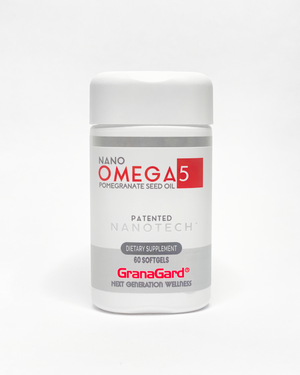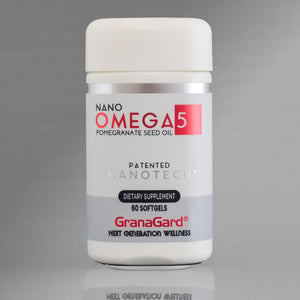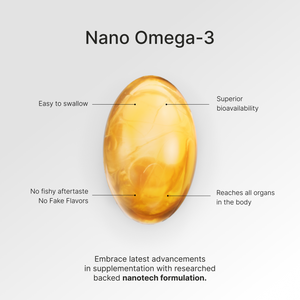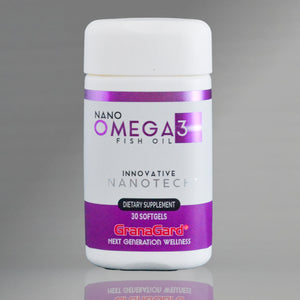Reducing oxidative stress is possible, but this implies, for some, a drastic change in habits or the adoption of a very healthy lifestyle.
To reduce oxidative stress, we must start with the diet, (What are the best antioxidant foods) we must eat as healthy as possible, understanding healthy as the presence of nutrients, minerals, vitamins, and a good amount of antioxidants in the foods we consume. Not having any harmful habits, not having any inflammatory disease, sleeping 7 to 8 hours daily, (6 powerful reasons to sleep well) not being in contact with polluted environments like those of big cities, not being sedentary, receiving an adequate amount of solar radiation… But don't be discouraged, although it looks like an “impossible mission,” it can be controlled and reduced.
It is paradoxical that the very things that give us life can cause us harm, diseases, and even death. Oxygen is the element that allows life on the planet. Inside our body, biochemical reactions depend on it for energy production, but energy is not the only thing generated; some reactive oxygen species (ROS) and free radicals are also generated.
What is oxidative stress
The reactive oxygen species (ROS) and free radicals generated during our normal metabolism have the capacity to oxidize other biomolecules such as the lipids that make up cell membranes; the proteins that are part of receptors, hormones, or chemical mediators; the DNA that contains our genetic information and regulates cellular processes and functions.
Fortunately, we have an internal antioxidant system that can counteract those ROS and free radicals before they cause damage to our biomolecules, thus establishing a balance between oxidation and antioxidation. When this balance is disrupted in favor of oxidation, we are in the presence of oxidative stress. (Oxidative stress: myth or reality)
To maintain this balance, prevent oxidative stress, and therefore prevent premature aging and chronic degenerative diseases such as cardiovascular diseases, (Benefits of Omega 3 for cardiovascular health) metabolic, neurological, and rheumatic diseases; the “fight” between oxidizing and antioxidant agents (What are antioxidants in simple words) must be proportional; it wouldn't make sense to pit a heavyweight boxer against a flyweight. Another factor to consider is that from the fourth or fifth decade of our life, the production of internal antioxidants begins to decline.
How oxidative stress originates

In principle, our internal antioxidant system is solely responsible for preventing the onset of oxidative stress. For our internal antioxidant system to have a chance of success, by having to face only the oxidizing agents generated by the metabolism of food and other physiological processes, we should be living according to the parameters of extraordinary healthy habits mentioned in the first paragraphs of this article.
Most of the world's population does not live under these conditions, and trying to recreate the environment of the so-called blue zones (The blue zones) would mean giving up many of the technological advances we enjoy every day. Would we be willing to make such a radical change? It is indeed an idyllic vision: abandoning our city life and all that it entails, eating very healthily, going to bed at 9-10 at night, exercising in a non-polluted area… We must be realistic, for most of us it is very difficult.
When our internal antioxidant system has to face an excess of free radicals generated by unhealthy habits like smoking, or by a lifestyle that includes living in an environment with high atmospheric pollution, an imbalance in favor of oxidation occurs, leading to oxidative stress.
How to reduce oxidative stress practically and effectively
The deficit of internal antioxidants, either due to high consumption caused by the excess of oxidizing agents or due to a decrease in production due to age, can be resolved by antioxidant supplements, (Why take antioxidant supplements) with these we would be providing our body with an amount of external antioxidants that, when added to the internal antioxidants, could restore the balance between oxidation and antioxidation, and thus control oxidative stress.
The problem is that, due to their physicochemical characteristics, sizes, solubility, mechanism of action, etc., characteristics that differentiate antioxidant supplements, conventional antioxidants cannot protect all tissues equally; there are barriers they cannot cross, some of them can act in fatty tissues, while others act only in hydrophilic tissues. Only 10 years ago, in the 21st century, science and technology have come to the rescue, solving the two aspects that have limited conventional antioxidant supplements: their solubilities and their sizes as particles.
Omega 5 (What are the benefits of Omega 5) is a powerful natural antioxidant extracted from pomegranate seed oil. Through nanotechnology (What is Nanotechnology in simple words), it has been transformed into a nanoemulsion, giving it the power to dissolve in aqueous and lipid media. As if that were not enough, with its nanometric dimensions, it is capable of crossing barriers, such as the blood-brain barrier, so far impassable for other antioxidants. In short, we now have a powerful natural antioxidant, Nano Omega 5, capable of reaching all the organs of our body to protect them, including the brain, which is highly susceptible to oxidative stress.
Nano Omega 5 is the latest generation of antioxidants and is from GranaGard®. With it, we can restore balance and control oxidative stress.
Protect yourself with Nano Omega 5 from GranaGard®!





